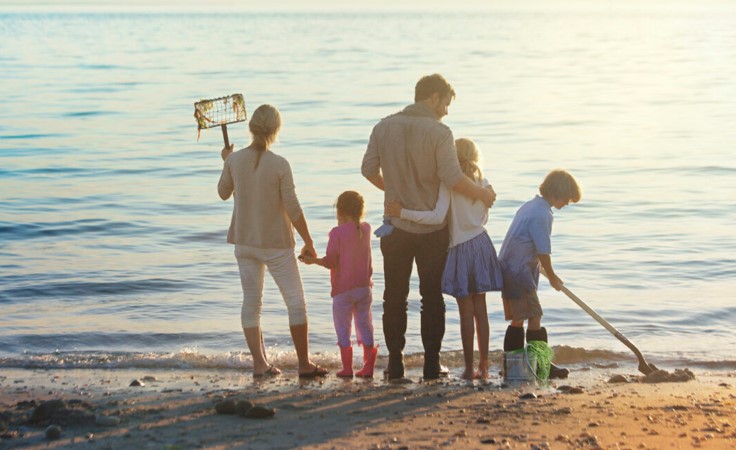As a scorching July dawns, many of us are packing up the house, and heading for some sunny beach somewhere, to revel in the sun, and cool off in the crisp waves. But what few of us consider during the hot summer months is the impact our presence has had on this beautiful Earth of ours. Even if we resist the “temptation” to litter the sea/ocean of our choice with plastic wrappers, bottles, or who knows what else, the sad truth is, an alarming amount of waste is going into the waters, day in, day out. This is how Clean Beaches Week was created.
What is Clean Beaches Week?
Originating in 2003, Clean Beaches Week is an ecological initiative that has, over time, drawn the support of over 150 coastal governors, mayors, and other figures of authority. Clean Beaches Week is celebrated every year, starting from July 1st through July 7th, across the United States of America.
Clean Beaches Week is about so much more than simply not dumping waste on your local beach (though that, too!). Clean Beaches Week is a fantastic opportunity to educate beachgoers and revellers about the dangers of dumping even so much as a plastic wrapper on your sandy dunes. Unfortunately, while the serious consequences of littering are obvious to many, there are still some people who don’t “see the big deal”, and that’s what Clean Beaches Week means to change. Aside from educating, Clean Beaches Week is also about staying true to its name, aka going along the US coastline, and cleaning up its beautiful shores.
The 4th of July is, arguably, the biggest holiday celebrated in the United States. As it is smack-dab in the middle of summer, it’s also one of the hottest beach days for the American public. Unfortunately, that also means a lot of littering and waste getting dumped on US shores.
Clean Beaches Week also coincides with plastic-free July, another laudable ecological initiative, this time from the other side of the pond. Plastic-free July is observed throughout the United Kingdom and is basically a month-long focus on reducing single-use plastics.
Plastic-free July is about cutting out the use of plastics in our daily lives (in anything from pre-packaged foods to sourcing barrel laundry detergent) and altering our holiday experiences. During plastic-free July, beachgoers are encouraged to prepare and pack their own meals, among other things. Not only will this include less beach-littering, but it will also allow holiday makers and day trippers to save money on those overpriced beach treats.
Geomag’s Role in Clean Beaches Week
Because we understand the importance of plastic use reduction, and we firmly believe in teaching these values to the next generation, our production process is designed in such a way to minimize the production of microplastics. Geomag toys and educational devices have never been simply about providing kids with a little bit of fun. Our mission is to teach children about building a better, plastic-free future. As a demonstration of our commitment to reduce the plastic waste, Geomag teamed up with Lifegate (perhaps the biggest sustainability network) and sponsored the installation of a Seabin in the Ligurian Sea.
Since Italy is one of the hottest beach destinations in Europe, this also means the Ligurian Sea is one of the most at-risk seas when it comes to waste-dumping and pollution. Hence this initiative.
What is a Seabin?
A Seabin, as the name suggests, is a special ecological recipient that promotes life underwater that is protected from oil spills, plastic dumping, and toxic waste. But more than being a mere bin, the Seabin acts more like a filter, with everything going into it (water, plastics, microplastics, oil, etc.). The Seabin is designed to trap plastics and microplastics inside, allowing the water and oil to pass on to the next stage of the filter.
But of course, we can’t just let the oil wash up back into our beautiful oceans. The Seabin then separates the clear water from the polluting oil, also trapping the latter inside, and finally allowing the clear water to flow back into the sea.
Thus, a Seabin protects sea life and those precious underwater ecosystems from toxic plastics and oil dumps, which in turn, protects us (because we aren’t headed for a bright future if we’re slowly killing our oceans).
For Geomag, this first Seabin in the Ligurian Sea is only the beginning of our long-standing journey to reduce plastic dumping and pollution and build a better, brighter future for the children we’re so keen on educating.
From September 10th 2019 to December 31st 2020, Geomag are delighted to report the Seabin has removed from water over 458 kilos of floating waste, the equivalent in weight of over 91,700 bags
- How Primary Care Doctors Are Your First Line of Defense - December 23, 2024
- Live-In Caregiver Jobs: Providing Support, Building Bonds - December 19, 2024
- Caring for Your Porcelain Veneers: Tips for a Lasting Smile - November 12, 2024
